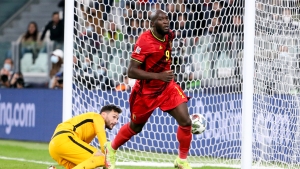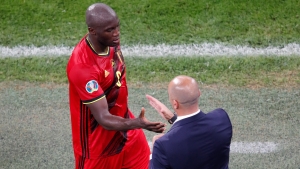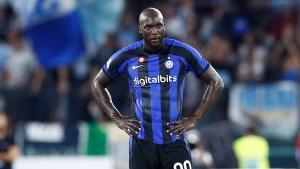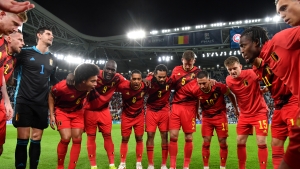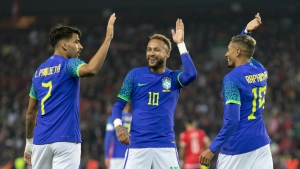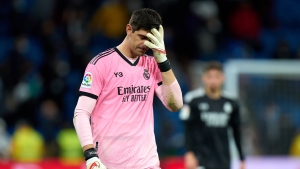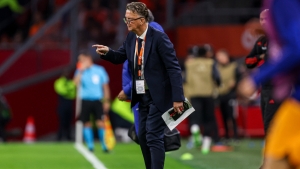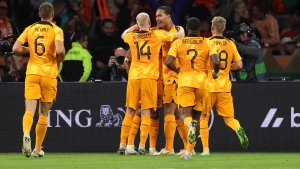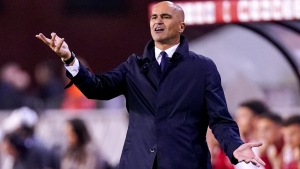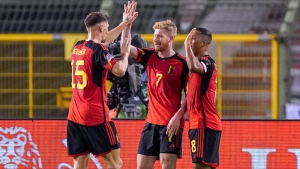Romelu Lukaku has been included in Belgium's 26-man squad for the Qatar World Cup, despite injury concerns.
Head coach Roberto Martinez warned that Lukaku had to prove his fitness for the group stage if he was to be named in the squad, which the striker appears to have done.
Belgium's record goalscorer Lukaku, on loan at Inter from Chelsea, made his comeback from a hamstring injury, coming off the bench to score against Viktoria Plzen in the Champions League on October 26.
However, that is one of just two appearances the 29-year-old has managed since August, with his last game coming on October 29 against Sampdoria.
There is no place for another forward plying his trade in Serie A, with Milan's Divock Origi left out, though his club team-mate Charles De Ketelaere does make it.
The Premier League has plenty of representation, with three players from Leicester City, including Youri Tielemans, along with Manchester City star Kevin De Bruyne, Brighton and Hove Albion's in-form winger Leandro Trossard and midfielders from Everton and Aston Villa in the form of Amadou Onana and Leander Dendoncker.
Eden Hazard has started just two games for Real Madrid this season, but makes the cut among Martinez's forwards, while club-mate Thibaut Courtois will be hoping for another fine tournament on an individual level, after he won the Golden Glove at Russia 2018.
This could be what has been dubbed the "golden generation" of Belgian football's last chance to win a major tournament, with several of their star players now over or approaching the age of 30. They finished third in 2018, beating England in a play-off match after losing to eventual champions France in the semi-finals.
Belgium kick their tournament off against Canada on November 23, before playing Morocco and Croatia in their other Group F matches.
Belgium squad: Koen Casteels (Wolfsburg), Thibaut Courtois (Real Madrid), Simon Mignolet (Club Brugge); Toby Alderweireld (Royal Antwerp), Timothy Castagne (Leicester City), Zeno Debast (Anderlecht), Leander Dendoncker (Aston Villa), Wout Faes (Leicester City), Thomas Meunier (Borussia Dortmund), Arthur Theate (Rennes), Jan Vertonghen (Anderlecht); Yannick Carrasco (Atletico Madrid), Kevin De Bruyne (Manchester City), Thorgan Hazard (Borussia Dortmund), Amadou Onana (Everton), Youri Tielemans (Leicester City), Hans Vanaken (Club Brugge), Axel Witsel (Borussia Dortmund); Michy Batshuayi (Fenerbahce), Charles De Ketelaere (Milan), Jeremy Doku (Rennes), Eden Hazard (Real Madrid), Romelu Lukaku (Inter), Dries Mertens (Galatasaray), Lois Openda (Lens), Leandro Trossard (Brighton and Hove Albion)























